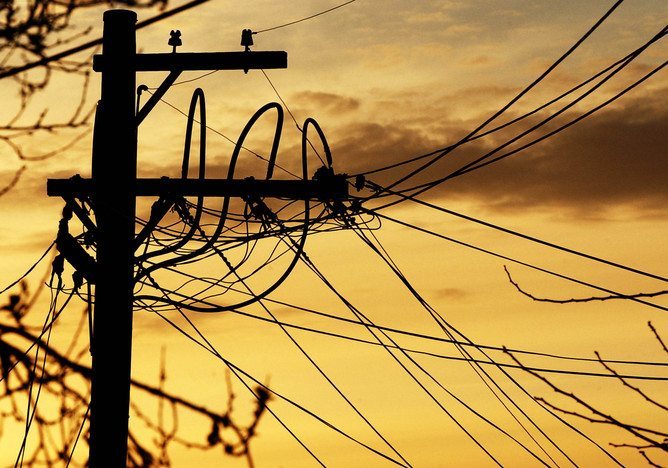

The reputation of the energy industry is under stress across the globe – particularly as incumbent fossil fuel industries resist the fight against climate change – but in some countries such as the Australia, the UK, Brazil and South Africa, the situation is acute.
A major new survey by IPSOS-Mori in the UK says the “favourability” of the energy industry falls into negative territory compared to other sectors in about one third of the countries surveyed.
In Australia, just 22 per cent have a favourable view of the energy industry, compared with an average 28 per cent for other sectors such as banking, airlines, cars, chemicals, beers, sweets, fast food, insurance, and media. That gives Australia’s energy industry a negative ranking of mi us 6 per cent. Only the UK and South Africa fared worse.

IPSOS-Mori blames the poor ranking in Australia on gas supply issues, presumably also coal seam gas, and the collapse in large scale renewables investment, which has undermined confidence in the energy industry.
Presumably that also applies to the small scale market, where the conventional business models are already under stress because of the high cost of electricity, particularly grid charges, and the opportunities being afforded by rooftop solar and battery storage.
That is requiring energy utilities to learn how to bring their business beyond the metre and inside the household. That is not as easy as it might sound.
In 2010, a study from Ernst & Young showed electricity retailers were not skilled at customer service. There was little interchange with the customers, and if there was, it was sparked by complaints around blackouts and connections.
The report noted that, with the deployment of new technologies, power and utilities companies will come under competitive attack all along the value chain, as new interactive customer relationships and new competitive models allow third parties to enter the market.
The incumbents can choose either to evolve, or face a revolution where “market rationalities and business strategies change completely”. This was a theme picked up by the CSIRO in its two reports on the future grid, where it warned that if conventional utilities did not evolve, then one third of customers could desert them altogether.
That option is fast approaching as the cost of new technologies falls, and utilities react to defend their earnings by jacking up fixed network charges and choosing tariff options that seek to make these technologies less attractive.
 Australia already enjoys one of the highest “churn rates” in the world, with one quarter of all customers swapping their energy providers every year to keep a lid on costs. (See graph right courtesy of Deutsche Bank).
Australia already enjoys one of the highest “churn rates” in the world, with one quarter of all customers swapping their energy providers every year to keep a lid on costs. (See graph right courtesy of Deutsche Bank).
That shows that, contrary to the claims of some utilities, many consumers are “fully engaged” in their product. And why they are suddenly so sensitive in the way they are portrayed in engaging with new technology.
The conventional utilities are already coming under threat from new operators that focus on renewable energy, such as PowerShop and Diamond Energy, amongst others. In northern NSW, the country’s first community-owned retailer, also focused on renewables, is about to start operations after raising nearly $4 million late last year.
IPSOS-Mori says security of supply is the major issue with consumers, and the reason why South Africa and Brazil rate so poorly – South Africa’s grid is a mess and Brazil has been plagued by drought, which has affected its hydro power.
It says the UK is a melting pot of energy-related concerns, starting with perceptions of oligopoly pricing and a lack of trust in electricity and gas suppliers, to the nimby opposition that has undermined onshore wind energy, controversy over new subsidies for nuclear energy and the public protest that has faced the first exploratory fracking.
“This litany of public disapproval looks set to be joined by alarm over recent predictions that the margins of safety around Britain’s security of electricity supply are soon to fall to their lowest level ever due to lack of generating capacity.”
Australia, it should be noted, has one of the most secure supplies of electricity in the world, but clearly other issues are at stake for consumers in this country – which has one of the highest take-ups of rooftop solar in the world.
 IPSOS-Mori says that the energy industry as a whole has a growing reputational problem. In the latest annual consultation with the Ipsos Reputation Council, 141 senior communicators from across the world placed the energy industry second only to financial services as the industry with the greatest reputation challenges.
IPSOS-Mori says that the energy industry as a whole has a growing reputational problem. In the latest annual consultation with the Ipsos Reputation Council, 141 senior communicators from across the world placed the energy industry second only to financial services as the industry with the greatest reputation challenges.
Only pharmaceuticals shows a steeper rise in concern.
“Unpopular new energy sources that give rise to public concern – fracking is the best example – require high levels of trust from the public to be operationally successful and keep costs down,” IPSOS-Mori notes.
“The public needs to believe that the industry has their best interests in mind; if they perceive a simple drive for profit at the expense of public safety and environmental protection opposition will grow and the task of increasing energy supply will become more difficult. ”
Giles Parkinson is founder and editor of One Step Off The Grid, and also edits and founded Renew Economy and The Driven. He has been a journalist for 35 years and is a former business and deputy editor of the Australian Financial Review.


